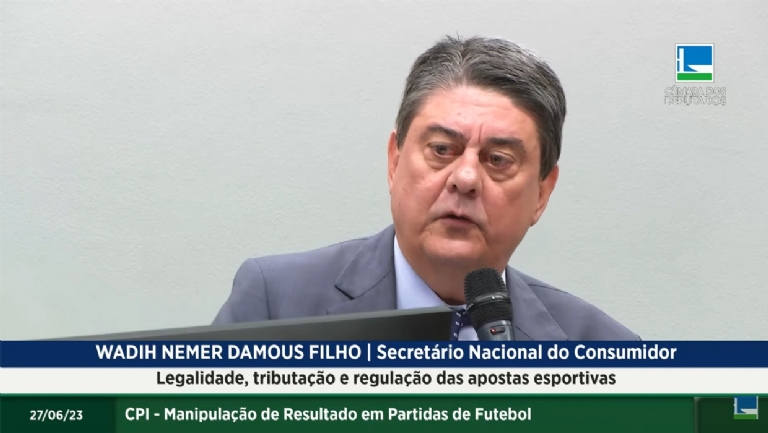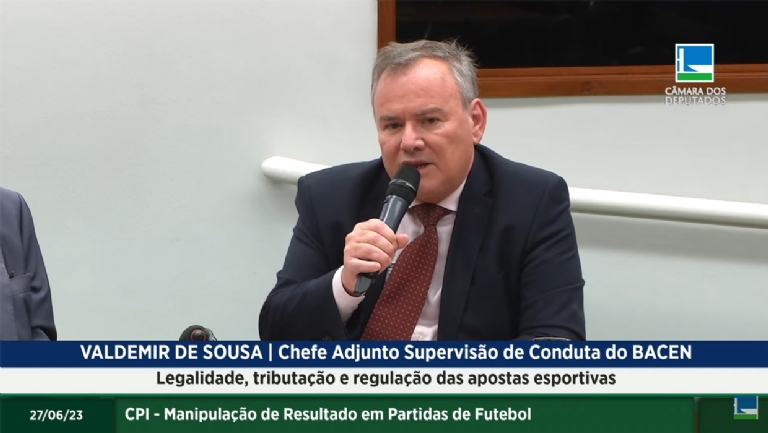

CPI-FUTE held a public hearing this Tuesday (27), to hear government representatives on the regulation and taxation of sports betting. The most important piece of data is that Brazil failed to collect between R$ 6 and 8 billion (US$ 1.25 and 1.7 billion) in the last four years due to lack of regulation. José Francisco Manssur, special adviser to the Ministry of Finance, took this data to the collegiate and highlighted that “today, Brazil stops collecting R$ 10 million (US$ 2.1 million) per day.”
Manssur again said that the government had listened to the sector and everyone involved. “We are going to send a Provisional Measure (PM) and a Bill in the next few days, since there are issues that cannot be dealt with by provisional measure, as is the case of Minister Fernando Haddad's determination to create the National Secretariat for Gaming and Lotteries, which will be in charge of regulate fixed odds betting, as well as all games and lotteries in general,” he said.
This theme, according to him, will be forwarded in the form of a Bill. “The ordinances will come to guide the accreditation of operators and that they are headquartered in Brazil. They will pay the grant and will have to hire a certain number of Brazilian professionals. Every day that the government does not regulate, Brazil fails to collect R$ 10 million (US$ 2.1 million) a day”.
The chairman of the meeting, Deputy Áureo Ribeiro, asked why the regulation of other verticals was not foreseen and how much the activity represents for a bookmaker.
Manssur said that this happens “in a proportion that can reach 80% of bets on other games and 20% on sports bets, unlike some sites, where the exact opposite occurs. Games other than fixed quota games are illegal. We are not going to usurp the prerogative of Congress, which is responsible for discussing other types of games. We have to wait for the deliberations of the Legislative,” he summarized.

Wadih Nemer Damous Filho, National Consumer Secretary, stated that “we have received many complaints from bettors who do not receive prizes. There are events that constitute, at least in theory, criminal offenses (manipulation). This scenario has to be faced jointly by the Executive, Legislative and Judiciary, in addition to police agencies.”
For him, there are difficulties in enforcing the rights of gamblers due to the fact that Brazilian legislation does not allow the practice of gambling and that sports betting needs to be regulated as soon as possible “so that we can act in consumer protection.”
He cited Bill 442/91, which deals with other types of games, so far it has not been definitively approved and if that happens, “it will mean protection of consumer rights and tax collection. It would be a very positive thing for the government. It is a task for the National Congress and the CPI can contribute in this sense,” noted Wadih Damous.
Waldemir de Sousa (Bacen's deputy head of conduct supervision), representing the president of the Central Bank, Roberto Campos Neto, stated that the payment flow of companies, which are headquartered abroad, takes place through exchange operations.
“It is not up to us to deal with the regulation of betting, but payment flows are. This is regulated by Bacen and has its own code. From the Central Bank's point of view, everything is perfectly within exchange rate regulation,” he said.

He pointed out that between January and June, movements of around US$ 8 billion were effected, between remittances and inflows of resources, “that is, a volume that called attention. We welcome regulation, forcing companies to be incorporated in Brazil. In addition to the economic aspects, it would create an upper layer of control.”
Source: GMB